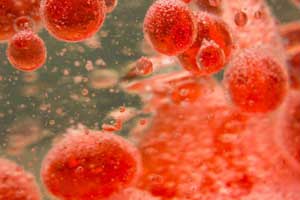- Home
- Editorial
- News
- Practice Guidelines
- Anesthesiology Guidelines
- Cancer Guidelines
- Cardiac Sciences Guidelines
- Critical Care Guidelines
- Dentistry Guidelines
- Dermatology Guidelines
- Diabetes and Endo Guidelines
- Diagnostics Guidelines
- ENT Guidelines
- Featured Practice Guidelines
- Gastroenterology Guidelines
- Geriatrics Guidelines
- Medicine Guidelines
- Nephrology Guidelines
- Neurosciences Guidelines
- Obs and Gynae Guidelines
- Ophthalmology Guidelines
- Orthopaedics Guidelines
- Paediatrics Guidelines
- Psychiatry Guidelines
- Pulmonology Guidelines
- Radiology Guidelines
- Surgery Guidelines
- Urology Guidelines
US scientists may have found potential treatment for leukaemia

Stanford scientists have identified a molecule that can be targeted to cure leukemia - the most common form of cancer in childhood.
B-cell acute lymphoblastic leukemia is the most common childhood cancer. Usually, it can be treated with chemotherapy, but sometimes patients suffer relapses or don’t improve after treatments such as chemotherapy or bone marrow transplants.Cell therapy is a new approach to tackle these difficult forms of cancer
The therapy is similar to but distinct from CD19-targeted chimeric antigen receptor T-cell therapy, or CAR T-cell therapy, in which a patients T cells are genetically modified to target a molecule called CD19 on the surface of the cancer cells.This therapy was recently approved by the US Food and Drug Administration (FDA) for the treatment of some types of blood cancers, according to a study published in the journal Nature Medicine.
The therapy genetically modifies a patients T cells to target a different molecule called CD22, scientists at the Stanford University in the US said.The approach is helpful because the cancer cells of some patients who undergo CD19-targeted CAR T-cell therapy stop expressing the CD19 molecule on their cell surfaces.CAR T-cell therapy relies on a patient own T cell - a type of immune cell that can be a powerful killing machine.
Fifteen of the 21 patients in the study had previously either relapsed or failed to respond to anti-CD19 CAR T-cell treatment.At the lowest dose level, one in six patients achieved complete remission after treatment with the anti-CD22 CAR T cells.However, when the researchers escalated the dose to the next level in the study, 11 of 15 patients, or 73 percent, entered remission.
They hope that targeting CD19 and CD22 simultaneously may result in a powerful therapy - one that cancer cells are unable to evade.
bone marrow transplantscancer cellsCAR T cell therapycell therapychemotherapyFDAjournal Nature MedicineLeukaemiaUS Food and Drug Administration
Source : PTINext Story
NO DATA FOUND

Disclaimer: This site is primarily intended for healthcare professionals. Any content/information on this website does not replace the advice of medical and/or health professionals and should not be construed as medical/diagnostic advice/endorsement or prescription. Use of this site is subject to our terms of use, privacy policy, advertisement policy. © 2020 Minerva Medical Treatment Pvt Ltd